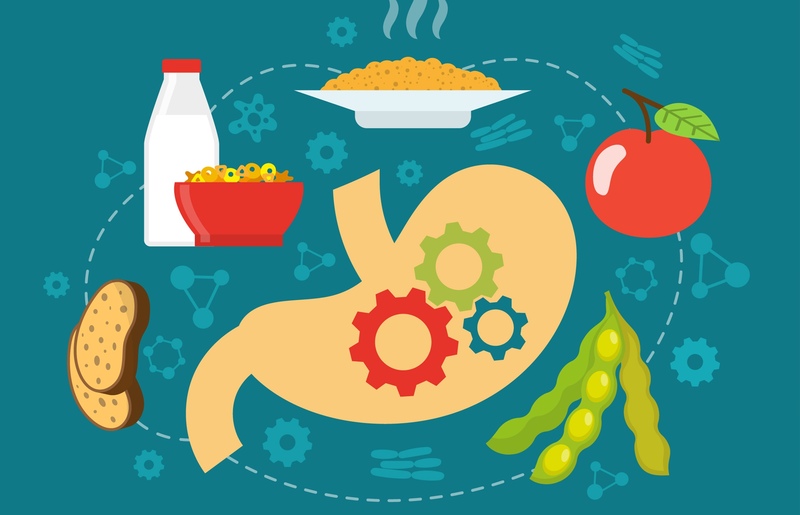The significance of shedding belly fat extends beyond aesthetics in our health-conscious world today. Excessive abdominal fat is closely associated with a variety of health risks. This article delves into this crucial aspect. Moreover, it offers thirteen insights into practical methods for achieving a healthier waistline.
1. Prioritize a Balanced Diet
To effectively reduce belly fat, you must fundamentally maintain a balanced diet. Incorporate whole foods. Focus on lean proteins, such as fiber-rich fruits and vegetables in your meals. However, limit intake of processed foods and refined sugars. They contribute to the accumulation of fat around the midsection.
Consider the timing of your meals in addition to selecting nutrient-dense foods. Opt for a strategy that includes consuming smaller, well-balanced meals throughout the day. This method not only regulates blood sugar levels, preventing overeating during primary mealtimes but also stabilizes energy levels. It’s an effective support system for your overarching weight management objectives.
- Consideration: Include a variety of colorful vegetables to ensure a broad range of essential nutrients in your diet.
- Caution: Be mindful of liquid calories from beverages, as they can add up quickly and impact your overall calorie intake.
2. Stay Hydrated for Optimal Metabolism
Any weight loss journey necessitates adequate hydration. Water not only regulates appetite, but it also catalyzes metabolism, facilitating fat breakdown. Therefore, ensure a consistent intake of sufficient water throughout your day to bolster and support your body's natural fat-burning processes.
Incorporating herbal teas or infused water, enhanced with slices of fruits and herbs, can introduce flavor without the calorie surplus often present in sugary beverages. Your hydration strategy should not merely focus on quantity. It must also prioritize the quality of your chosen drinks to sustain an optimal metabolism for health maintenance.
- Fact: Drinking water before meals can contribute to a feeling of fullness, potentially reducing overall calorie intake.
- Consideration: Hydrate consistently, not just during workouts, to support your metabolism throughout the day.
3. Engage in Regular Physical Activity
In the reduction of belly fat, physical activity assumes a pivotal role. You should integrate cardiovascular exercises and strength training into your routine. One must strive for, at minimum, 150 minutes per week of moderate-intensity aerobic exercise. On top of this, they should engage in two or more days' worth of strength-training sessions each week.
Consider enhancing your workout's effectiveness by varying your exercise routine. Not only does trying different forms of physical activity prevent monotony, but it also challenges and promotes continuous improvement in your body. Thereby, maximizing the benefits derived from a consistent fitness regimen.
- Fact: Resistance training helps build lean muscle mass, contributing to a higher resting metabolic rate.
- Consideration: Consult a fitness professional to tailor your workout routine to your fitness level and goals.
4. Prioritize Quality Sleep
Often overlooked, quality sleep remains crucial in weight maintenance. A deficiency disrupts hormonal balance, leading to heightened cravings and diminished metabolism. Your body's management of weight requires the aim for 7-9 hours of uninterrupted sleep each night.

A consistent sleep schedule and a calming pre-sleep routine are two factors that can significantly enhance the quality of your rest. By avoiding caffeine and electronic devices before you retire for the night and by ensuring an environment conducive to comfortable slumber, you foster not just rejuvenating sleep but also pave the way for effective weight management. It’s during these periods when our bodies repair themselves most efficiently.
- Fact: Poor sleep is linked to increased levels of the hunger hormone ghrelin, potentially leading to overeating.
- Caution: Limit screen time before bedtime to improve the quality of your sleep.
5. Manage Stress Effectively
Incorporate stress-management techniques such as meditation, deep breathing, or yoga into your daily routine. They can help reduce cortisol levels and support the loss of belly fat. Chronic stress triggers the release of cortisol, a hormone linked with abdominal fat storage. Implementing these methods is crucial to countering its effects.
Consider incorporating hobbies and relaxation-inducing activities into your routine, alongside traditional stress-relief practices. Your engagement with beloved activities can potentially boost your mental well-being. It may diminish overall stress levels and bolster support for your weight loss journey.
- Consideration: Prioritize time for self-care activities to promote mental and emotional well-being.
- Fact: Chronic stress can lead to emotional eating, hindering your weight loss efforts.
6. Monitor Portion Sizes
Essential for effective weight management is being mindful of portion sizes. Utilize smaller plates, remain conscious of serving sizes, and abstain from consuming large quantities of high-calorie foods. A significant contribution to belly fat reduction is achievable through vigilant attention towards portion control.
When you dine out, consider sharing dishes or choosing appetizers. These options usually offer smaller portions. Awareness of portion sizes aids not only in weight management but also encourages a mindful approach to eating, fostering a healthier relationship with food. This is an essential aspect of overall well-being.
- Consideration: Use visual cues, such as comparing portions to everyday objects, to estimate appropriate serving sizes.
- Fact: Smaller, more frequent meals can help regulate blood sugar levels and control hunger.
7. Incorporate High-Intensity Interval Training (HIIT)
Utilize HIIT, a potent tool for efficient calorie burning and belly fat reduction. Integrate short bursts of intense exercise with rest periods or less vigorous activity. This strategy amplifies the burning process during the workout. Furthermore, it fosters an elevated post-exercise calorie burn, an indispensable factor in achieving significant weight loss.
Incorporate varying exercises and fluctuate the duration of high-intensity intervals to maintain engagement in your HIIT workouts. This variability not only challenges your body but also thwarts adaptation. As a result, you can continue pursuing belly fat reduction with unabated effectiveness.
- Fact: HIIT can elevate your metabolism for hours after the workout, known as the "afterburn" effect.
- Caution: Start HIIT gradually, allowing your body to adapt to the intensity to avoid overtraining.
8. Consume Healthy Fats
Not all fats are harmful. The inclusion of healthy fats such as those found in avocados, nuts, and olive oil not only supports weight loss but also contributes to satiety. These specific types of fat facilitate appetite control by reducing overeating tendencies. This is a crucial element in maintaining an optimal body composition.
Incorporate healthy fats into your meals, and also consider the cooking methods you utilize. Opt for techniques such as grilling, baking, or sautéing. These preserve the nutritional integrity of fats. By avoiding deep frying in favor of these methods, one can contribute to a heart-healthy diet.
- Fact: Omega-3 fatty acids, found in fatty fish and flaxseeds, have anti-inflammatory properties.
- Consideration: Be mindful of portion sizes, as healthy fats are calorie-dense.
9. Optimize Gut Health
Probiotic-rich foods, such as yogurt and fermented vegetables, promote a healthy gut environment. This is crucial because the gut microbiome indeed contributes to weight regulation. Improved digestion and enhanced weight management are often associated with a balanced gut microbiota. We must take deliberate steps towards maintaining an optimal balance within our guts.

Consider enhancing your gut health by incorporating prebiotic-rich foods into your diet, garlic, onions, and asparagus among others. These particular food items provide essential nutrients that foster the growth and upkeep of beneficial gut bacteria. They contribute significantly to a healthy digestive system.
- Fact: Gut health is linked to immune function, emphasizing the broader impact of a healthy gut.
- Consideration: Gradually introduce probiotic-rich foods to allow your digestive system to adapt.
10. Cut Back on Added Sugars
Abdominal fat accumulation particularly results from excessive intake of sugar, notably in the form of sugary beverages and snacks. Therefore, reduce your consumption of added sugars. Instead, choose to use natural sweeteners such as honey or maple syrup sparingly.
Additionally, exercise mindfulness towards the hidden sugars present in processed foods. Not only should you strive to reduce added sugars but also identify and avoid products that could potentially contribute to excessive sugar intake. By reading labels diligently and cutting back on sugar consumption, you can foster belly fat loss.
- Consideration: Opt for whole fruits as a sweet treat instead of processed snacks with added sugars.
- Fact: Added sugars contribute to insulin resistance, a factor in the development of abdominal fat.
11. Increase Protein Intake
Incorporate lean protein sources like poultry, fish, beans, and tofu into your diet. These protein-rich foods foster a sense of fullness, curbing overall calorie intake. Additionally, they bolster muscle development which is an integral component for reducing belly fat.
To diversify your protein sources, venture into the realm of plant-based options, legumes, quinoa, and tempeh. By incorporating a variety of these protein-rich foods and ensuring you receive an ample spectrum of essential amino acids, you can significantly contribute not only towards effective weight management but also overall health.
- Fact: Protein requires more energy to digest, contributing to the overall calorie-burning process.
- Caution: Avoid excessive protein intake, as it may strain kidney function in some individuals.
12. Practice Mindful Eating
Paying attention to hunger and fullness cues, eating slowly, and savoring each bite, are the essential components of mindful eating. This approach supports belly fat loss by preventing overeating and by fostering a controlled calorie intake.
Consider not only being mindful of your physical hunger, but also incorporating gratitude into your meals. Take a moment to appreciate the flavors and savor the textures. Recognize and acknowledge nourishment provided by food on your plate. This fosters an affirmative relationship with eating. Such mindfulness enhances overall benefits for weight management, making it more than just about portion control or calorie counting.
- Consideration: Create a designated eating space to minimize distractions and fully focus on your meal.
- Fact: Mindful eating can improve digestion by promoting thorough chewing and aiding nutrient absorption.
13. Choose Whole Grains Over Refined Grains
Choose whole grains such as quinoa, brown rice, and oats over refined ones. The former offers not only essential nutrients but also fiber. They foster a sense of fullness, a key factor in reducing belly fat.
Incorporate a variety of whole grains into your meals. This will diversify your nutrient intake, an essential experiment. Try options such as farro, barley, or bulgur. Not only do they add nutritional value but also introduce a myriad of flavors and textures to your diet. This makes the act of healthy eating infinitely more enjoyable.
- Fact: Whole grains contain more vitamins, minerals, and antioxidants compared to refined grains.
- Consideration: Read labels carefully to ensure products labeled as "whole grain" truly meet this criterion.
Why It's Important to Lose Belly Fat?
Shedding belly fat is imperative for overall health, and goes beyond mere aesthetic appeal. Excessive abdominal fat correlates directly with elevated risks of heart disease and type 2 diabetes amongst other metabolic disorders. Embracing a healthier lifestyle not only augments one's physical appearance but also dramatically diminishes the probability of developing severe health conditions tied to abdominal obesity. Its importance cannot be overstated.
Profoundly comprehending the impact abdominal fat has on health underscores the significance of proactive measures, prioritizing reductions in belly fat through lifestyle modifications. This approach not only allows individuals to protect their long-term well-being, thereby alleviating risks linked with excess abdominal fat.
- Fact: Abdominal fat, known as visceral fat, is metabolically active and releases inflammatory substances, impacting overall health.
- Consideration: Losing even a small amount of belly fat can lead to significant improvements in health markers.
Conclusion
To conclude, you must adopt a comprehensive approach. This includes making dietary modifications, engaging in regular exercise, and not forgetting lifestyle adjustments. Implementing these strategies is prioritizing your health. They will allow for effective and sustainable reduction of belly fat. The result? A trimmer waistline and an overall improvement in well-being are the benefits you can enjoy.







